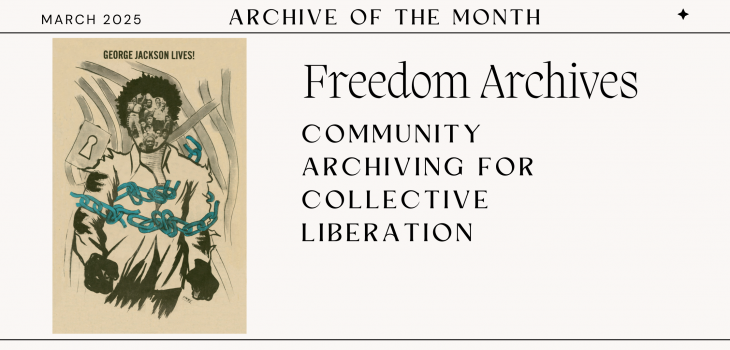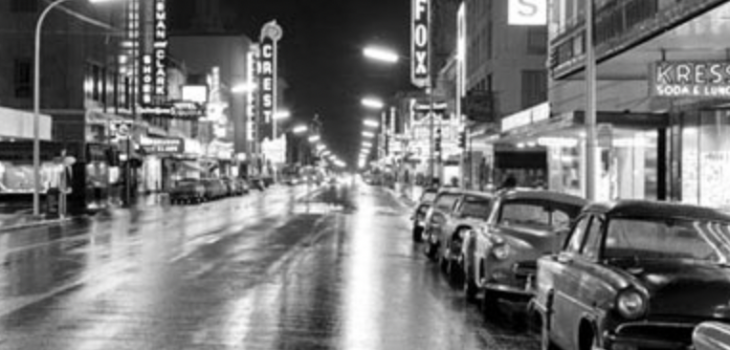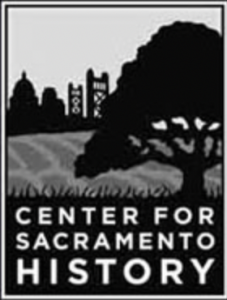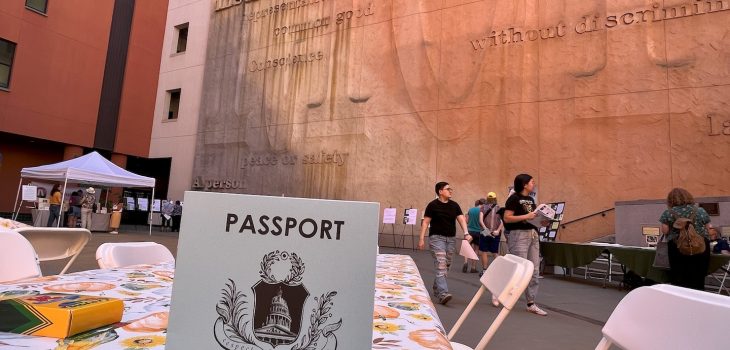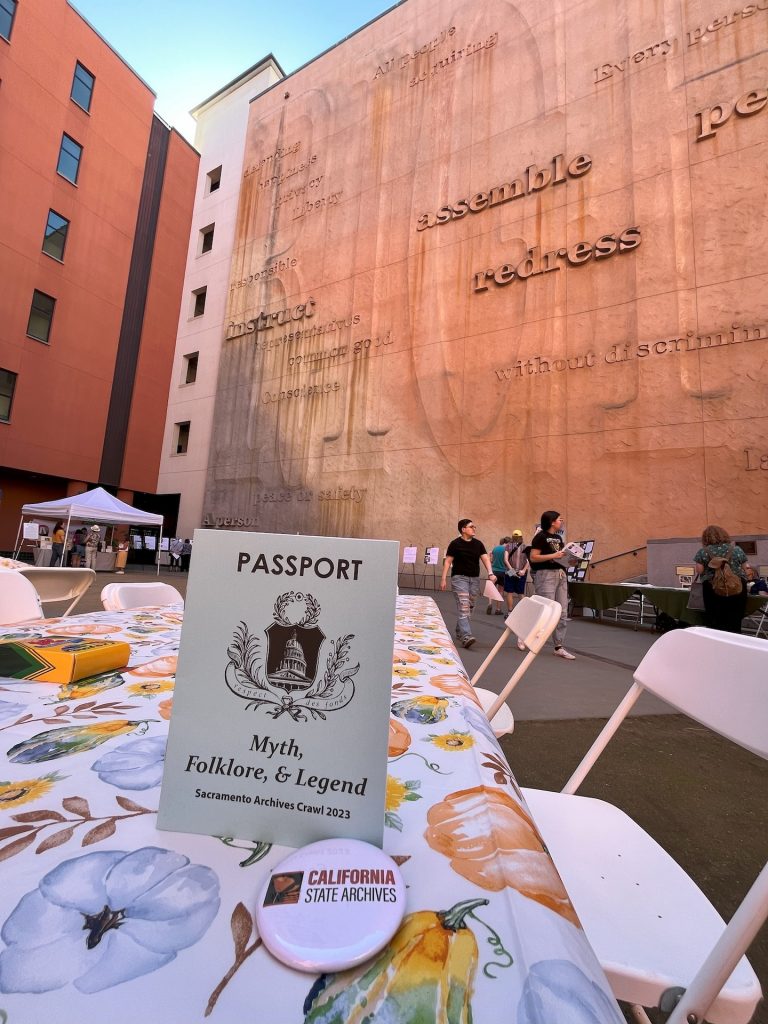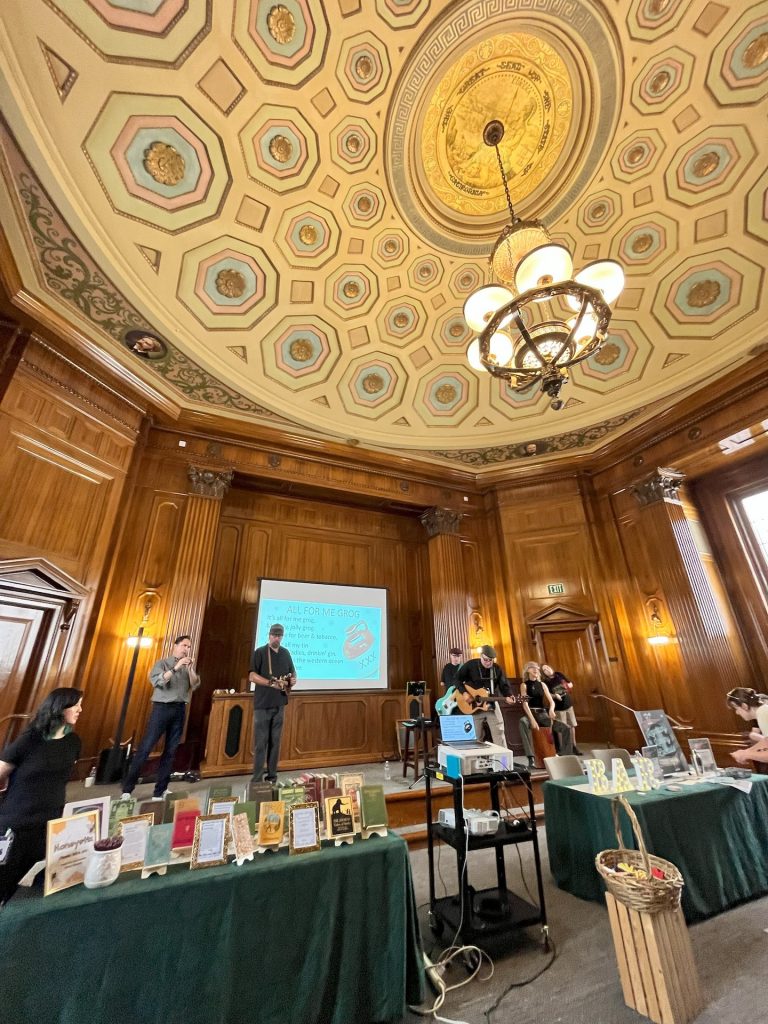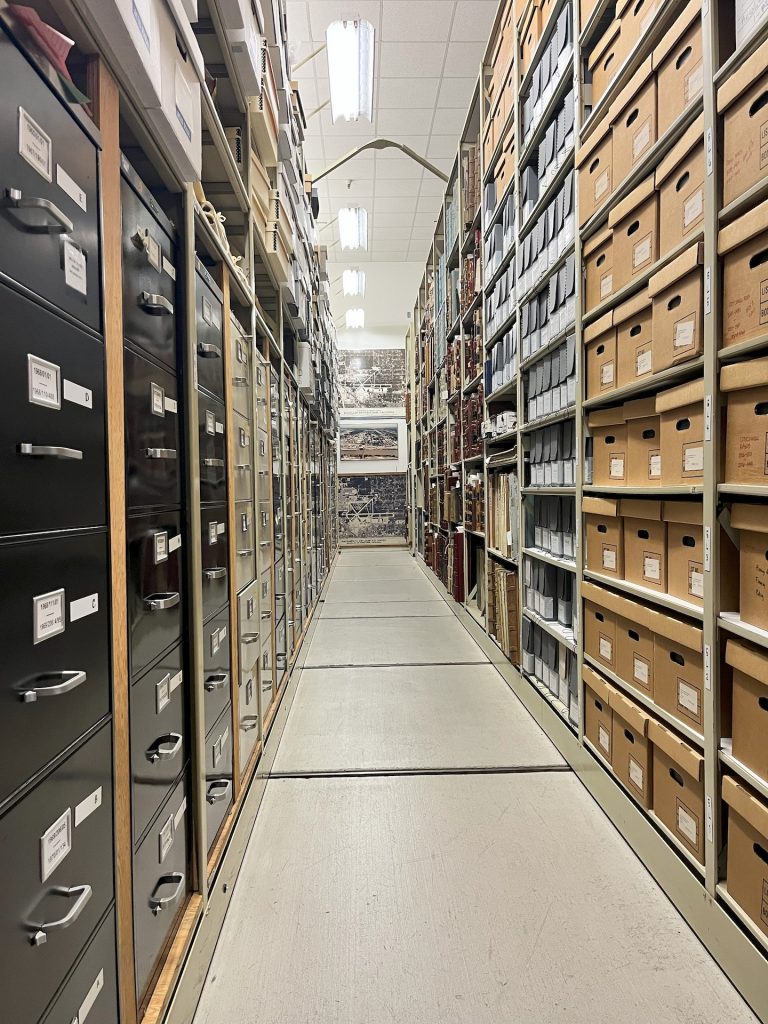
Connections and Community: Outreach during American Archives Month
Happy October, readers!
The month of October is American Archives Month. Archival repositories across the nation do various fun activities to raise public awareness about the significance of archives. For example, on October 16, 2025, it was #AskAnArchivist Day, a day when archival repositories can use the hashtag to answer the public’s questions through social media. This helps promote communication between archivists and the general public and engages audiences who might not otherwise know about archival work.

Some other events that occur during October that promote archives and archival work are events open to the public. In California, two big annual events showcase materials from different archival repositories in the area. If you’re in the Sacramento area, look out for the yearly Archives Crawl. If you’re in Los Angeles, look out for the Archives Bazaar. You can also check with your local associations to see if they are hosting a similar event near you in October. All of these activities are examples of outreach efforts that are coordinated on a larger scale.
Why do we need outreach?
Outreach events are a crucial part of the work archivists do, alongside the stewardship and preservation of archival materials. Outreach is defined by the Society of American Archivists as: “activities and programs that promote use of archives, archival resources, and archival collections; activities and programs that educate about and advocate for archives and archivists.”
Without outreach events, opportunities for the public to engage with the archival materials and generate their unique insights and ideas might not happen. So, how does this look like in practice?
Reflections from an Archives Month Outreach Event
I work in the archival processing unit at a university archive. Although my primary job is processing archival collections (stay tuned for future blog posts on this!) I have opportunities to participate in outreach events through our Archives and Special Collections department.

This month, for instance, Archives and Special Collections at UC Davis hosted an author talk to showcase the fruits of research with archival collections for American Archives Month. UC Davis alumna Janet Kaidantzis spoke about her research on female proprietors of summer resorts at Lake Tahoe from 1900-1930 and the subsequent article she published titled “The Nature of Her Business.” She shared glimpses into her research process and insights she gained from using two manuscript collections from the UC Davis archives: the Pierce Family Papers and the Glen Alpine Springs Collection. The event was open to the public, creating opportunities for people from different backgrounds to engage with Janet’s research and see what is possible with archival materials. To complement Janet’s talk and slideshow presentation, my colleague and I arranged a pop-up exhibit featuring materials from the two collections Janet used in her research, along with photo enlargements from the photo albums. For this pop-up exhibit, we used vitrines to showcase original documents, including a map, a pamphlet, two photograph albums, and original artifacts such as the original sign for the Glen Alpine Springs resort.

Outreach events like this open opportunities for people to engage with archival materials and each other, creating new ideas and learning moments. Something to keep in mind when working with archival materials is that the descendants of the people in your collections will interact with you and might attend outreach events you host. In this case, the descendants of the Pierce/Gilmore family attended the event, along with members of Janet’s family, students, and other members of the public. Though these people all had different relationships to the topic, they interacted in ways that produced new memories and ideas. Through the interactions of these various groups of people, I learned much more about the Glen Alpine Springs Resort, the family, and the materials I am currently surveying as I process the Glen Alpine Springs Collection. For example, from one member of the family, I learned that one of the photograph albums I was working with was a wedding gift for George and Susan Pierce. This information can be added to the finding aid, since the description of this album is scarce. Thus, the outreach event created an opportunity to activate the archival materials and prompted people to share ideas, stories, and contribute to knowledge production.


Overall, outreach events like the one held at UC Davis help activate archival materials so they are not just stagnant materials locked in time. New ideas arise when people gather to learn more about the collections, and there are opportunities to connect their experiences and expertise to the materials. Sometimes, when members of the public see what we do with archival materials, it may inspire ideas for future donations, events, or research trips.
As American Archives Month draws to a close, I hope you have opportunities to engage with your local archives and find ways to activate archival materials.
References:
Glen Alpine [Photograph album]. (1888). Pierce Family Papers [Box 13: Folder 1]. Archives and Special Collections, UC Davis Library, University of California, Davis.
Mrs. G. W. Pierce, with my love May Walker [Photograph album]. (circa 1901). Pierce Family Papers [Box 13: Folder 2]. Archives and Special Collections, UC Davis Library, University of California, Davis.
Society of American Archivists. (n.d.-a). [Photograph of American archives month graphic]. American archives month. Retrieved October 27, 2025, from https://www2.archivists.org/initiatives/american-archives-month-the-power-of-collaboration
Society of American Archivists. (n.d.-b). Outreach. Retrieved October 28, 2025, from https://dictionary.archivists.org/entry/outreach.html
